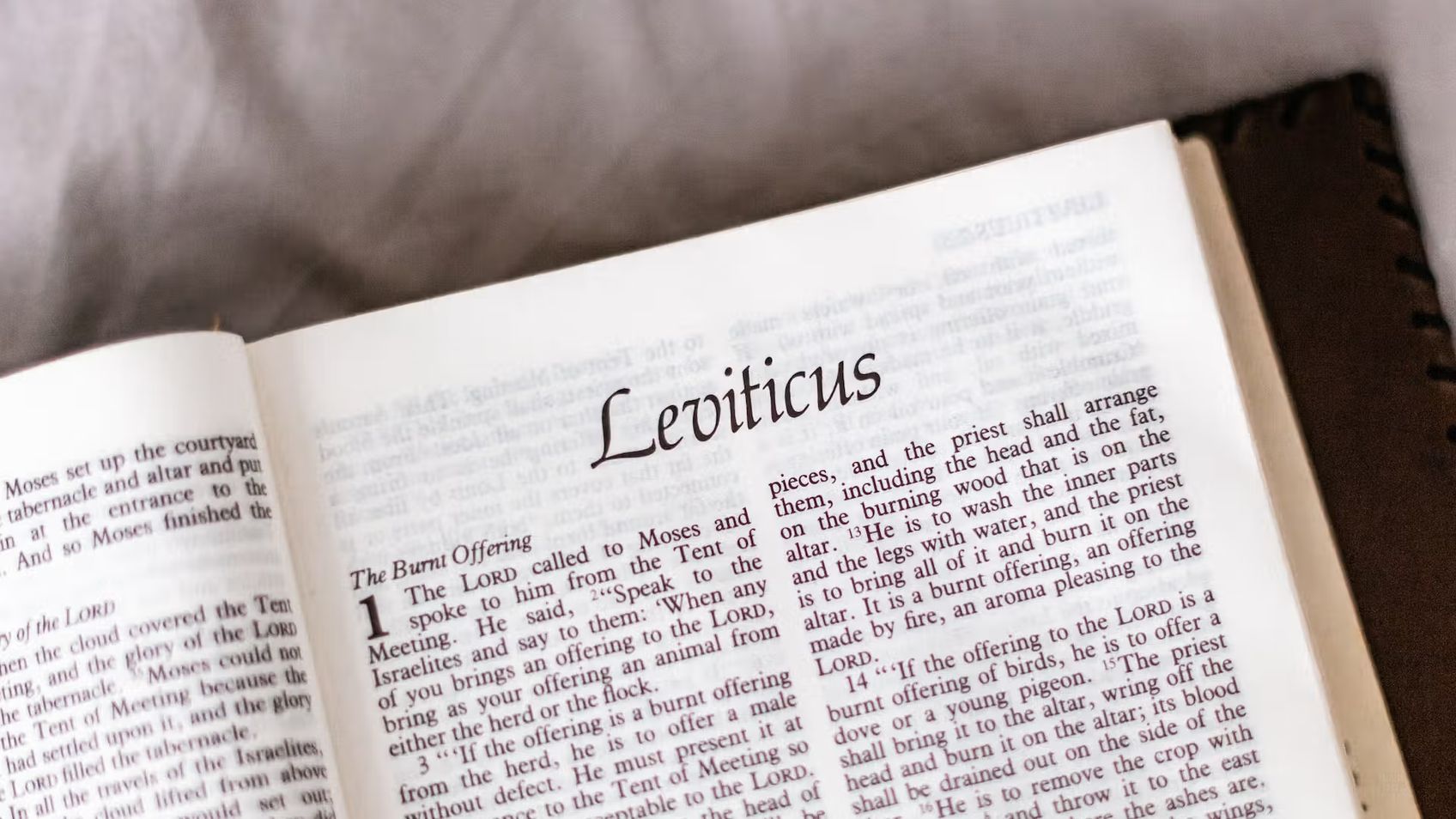Leviticus 26-27

LeviticusSteve Gregg
Leviticus 26-27 contains warnings and promises from God to the Israelites, including curses for disobedience and blessings for obedience. It emphasizes the importance of keeping God's commandments and the consequences of breaking them. The chapter also discusses tithing and vows made to God, outlining specific guidelines for their redemption. The speaker, Steve Gregg, provides insights into the meaning behind these ancient biblical texts and their relevance to modern-day Christians.
More from Leviticus
11 of 12

Leviticus 24 - 25
Leviticus
Leviticus 24-25 discusses a range of topics, including the presentation of loaves of bread, blasphemy against the name of the Lord, the importance of
Series by Steve Gregg

The Beatitudes
Steve Gregg teaches through the Beatitudes in Jesus' Sermon on the Mount.

1 Timothy
In this 8-part series, Steve Gregg provides in-depth teachings, insights, and practical advice on the book of 1 Timothy, covering topics such as the r

Titus
In this four-part series from Steve Gregg, listeners are taken on an insightful journey through the book of Titus, exploring issues such as good works

2 Thessalonians
A thought-provoking biblical analysis by Steve Gregg on 2 Thessalonians, exploring topics such as the concept of rapture, martyrdom in church history,

Original Sin & Depravity
In this two-part series by Steve Gregg, he explores the theological concepts of Original Sin and Human Depravity, delving into different perspectives

The Holy Spirit
Steve Gregg's series "The Holy Spirit" explores the concept of the Holy Spirit and its implications for the Christian life, emphasizing genuine spirit

Jeremiah
Steve Gregg teaches verse by verse through a 16-part analysis of the book of Jeremiah, discussing its themes of repentance, faithfulness, and the cons

Bible Book Overviews
Steve Gregg provides comprehensive overviews of books in the Old and New Testaments, highlighting key themes, messages, and prophesies while exploring

Kingdom of God
An 8-part series by Steve Gregg that explores the concept of the Kingdom of God and its various aspects, including grace, priesthood, present and futu

Gospel of John
In this 38-part series, Steve Gregg teaches verse by verse through the Gospel of John, providing insightful analysis and exploring important themes su
More on OpenTheo

Why Would Any Rational Person Have to Use Any Religious Book?
#STRask
December 8, 2025
Questions about why any rational person would have to use any religious book, whether apologetics would be redundant if there were actually a good, un

How Do You Justify Calling Jesus the Messiah?
#STRask
December 18, 2025
Questions about how one can justify calling Jesus the Messiah when he didn’t fulfill the Hebrew messianic prophecies, and whether the reason for the v

Are You Accursed If You Tithe?
#STRask
December 15, 2025
Questions about whether anyone who tithes is not a Christian and is accursed since Paul says that if you obey one part of the Mosaic Law you’re obliga

Is Greg Placing His Faith in the Wrong Thing?
#STRask
February 12, 2026
Questions about Greg placing his faith in his personal assessment of which truth claims best match reality rather than in the revelation of God in Jes

Can You Recommend Good Books with More In-Depth Information and Ideas?
#STRask
January 22, 2026
Questions about good books on Christian apologetics, philosophy, and theology with more in-depth information and ideas, and resources to help an intel

Is It Possible There’s a Being That’s Greater Than God?
#STRask
February 5, 2026
Questions about whether it’s possible there’s a being that’s greater than God and that’s outside of God’s comprehension and omniscience, and how to ex

Does God Hear the Prayers of Non-Believers?
#STRask
February 26, 2026
Questions about whether or not God hears and answers the prayers of non-believers, and thoughts about a church sign that reads (as if from God), “Just

What Do You Think About Churches Advertising on Social Media?
#STRask
January 19, 2026
Questions about whether there’s an issue with churches advertising on social media, whether it’s weird if we pray along with a YouTuber, and whether C

Keri Ingraham: School Choice and Education Reform
Knight & Rose Show
January 24, 2026
Wintery Knight and guest host Bonnie welcome Dr. Keri Ingraham to discuss school choice and education reform. They discuss the public school monopoly'

How Can I Explain Modesty to My Daughter?
#STRask
November 27, 2025
Questions about how to explain modesty to a nine-year-old in a way that won’t cause shame about her body, and when and how to tell a child about a pre

Are Demon Possessions and Exorcisms in the New Testament Literal?
#STRask
December 11, 2025
Questions about whether references to demon possessions and exorcisms in the New Testament are literal, how to talk to young children about ghosts, an

The Heidelberg Catechism with R. Scott Clark
Life and Books and Everything
November 3, 2025
You may not think you need 1,000 pages on the Heidelberg Catechism, but you do! R. Scott Clark, professor at Westminster Seminary California, has writ

Why Should We Pray If God Already Knows What’s Going to Happen?
#STRask
January 29, 2026
Questions about why we should pray if God already knows what’s going to happen, how the effectiveness of prayer is measured, and whether or not things

Why Does the Bible Teach You How to Be a Proper Slave Owner?
#STRask
November 13, 2025
Question about why it seems like the Bible teaches you how to be a proper slave owner rather than than saying, “Stop it. Give them freedom.”
* It s

Why Do We Say Someone Was Saved on a Particular Date If It Was Part of an Eternal Plan?
#STRask
November 24, 2025
Questions about why we say someone was saved on a particular date if it was part of an eternal plan, the Roman Catholic view of the gospel vs. the Bib
